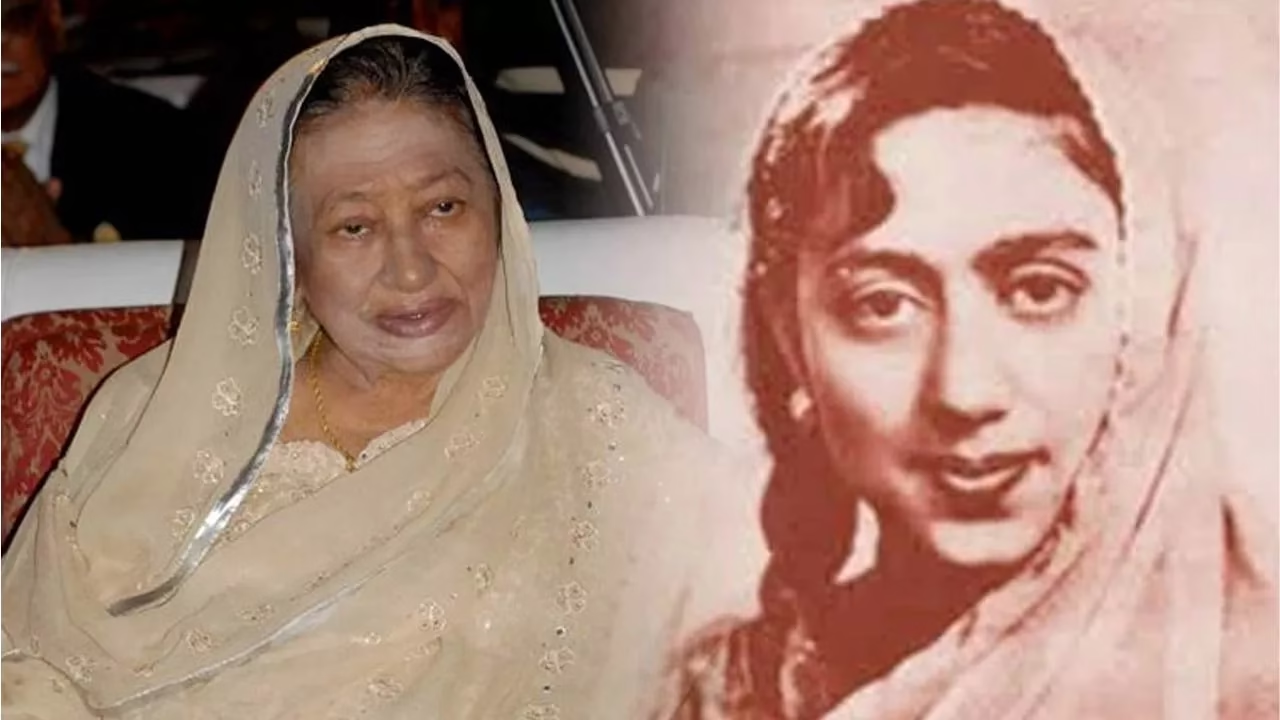Among the most cherished names in Pakistan’s golden era of film music, Zubaida Khanum remains an unforgettable figure whose melodious voice continues to echo through generations. Born in 1935 in Amritsar, Punjab, India, Zubaida Khanum’s journey to stardom began after the partition when her family migrated to Lahore, Pakistan. Despite not belonging to a traditional musical background, her natural talent and soulful expression made her one of the most beloved playback singers in the history of Pakistani cinema.
Zubaida Khanum’s name became synonymous with grace, melody, and emotion. She was one of the few female singers of her time who could infuse life into lyrics, giving every song a unique emotional depth. The Zubaida Khanum legacy still stands as a cornerstone of Pakistan’s music heritage, influencing many generations of singers who followed her path.
Early Life and the Beginning of a Musical Journey
Zubaida Khanum’s journey was not an easy one. Born into a simple family with no formal connection to music, she nurtured her love for singing through sheer passion and perseverance. After the partition, her family’s relocation to Lahore marked a new beginning for her. Lahore, which was emerging as the heart of Pakistan’s film and music industry, became the city where Zubaida Khanum’s dreams found their wings.
Her talent was first recognized by music directors who saw something extraordinary in her voice — a voice that carried purity, innocence, and unmatched expression. Her debut came in the early 1950s, and from that point onward, there was no turning back.
Rise to Fame: Zubaida Khanum in the 1950s and 1960s
The 1950s and 1960s are often regarded as the golden era of Pakistani cinema, and it was during this time that Zubaida Khanum became one of the country’s most celebrated playback singers. With her mesmerizing voice, she recorded over 250 songs that became timeless classics. Her collaborations with legendary composers such as Master Inayat Hussain, Rasheed Attre, and Khawaja Khurshid Anwar produced some of the most memorable film songs in Pakistan’s musical history.
Her songs for movies like Intezar (1956) and Mukhra (1958) showcased her ability to blend emotion with melody seamlessly. One of her most iconic songs, Aaye Mausam Rangilay Suhanay, remains a nostalgic favorite among music lovers even decades later. Whether it was romantic tunes, melancholic ballads, or patriotic anthems, Zubaida Khanum had the rare ability to adapt her voice to every mood.
Zubaida Khanum’s Contribution to Pakistani Cinema
Apart from being a legendary singer, Zubaida Khanum also briefly appeared on screen as a supporting actress in a few films. However, it was her playback singing that truly made her immortal. During her peak, she was often compared with other greats like Noor Jehan and Naseem Begum, yet her individuality remained distinct. Her voice symbolized softness, purity, and an emotional resonance that made her songs unforgettable.
Zubaida Khanum’s contribution was not just limited to film music. She played a crucial role in defining the identity of Pakistan’s post-independence cultural scene. Her songs often carried themes of love, hope, and national pride, resonating deeply with audiences of that era.
The End of an Era and Her Lasting Legacy
Even though Zubaida Khanum stepped away from the limelight after her marriage, her music continued to live on in radio programs, television shows, and film retrospectives. Her influence remains visible today as her songs are frequently revived and reinterpreted by modern musicians who seek to capture the same depth and emotion that she brought to every performance.
Zubaida Khanum passed away on October 19, 2013, in Lahore after suffering a heart attack. Her death marked the end of an era, but her melodious voice ensured that her memory would never fade. Nearly a decade later, her songs continue to enchant listeners across generations, bridging the gap between Pakistan’s musical past and present.
Zubaida Khanum’s Influence on Future Generations
Modern Pakistani singers continue to draw inspiration from Zubaida Khanum’s vocal style and dedication to her craft. Her songs remain part of music education and nostalgia-based shows that celebrate the roots of Pakistan’s film music industry. The emotional power of her voice still resonates with listeners who appreciate the purity and authenticity of classical Pakistani melodies.
Her ability to convey complex emotions through simple lyrics is what sets her apart even today. In an era dominated by technology and synthetic sounds, Zubaida Khanum’s natural and soulful singing reminds artists of the true essence of music — sincerity and emotional connection.
Remembering Zubaida Khanum: The Voice That Lives On
Although she may no longer be with us, Zubaida Khanum’s artistic spirit remains alive in every note she sang. Her songs continue to be broadcast on Pakistani radio stations, featured in documentaries, and shared across social media platforms by fans who admire her timeless contribution.
As the music industry continues to evolve, her legacy serves as a reminder of a time when melody, lyrics, and emotion came together in perfect harmony. The name Zubaida Khanum stands not just for one of Pakistan’s finest singers but also for a cultural icon whose music transcends time.
Her journey from a humble beginning in Amritsar to becoming the golden voice of Pakistan is a testament to passion, resilience, and dedication. Even decades after her passing, Zubaida Khanum continues to inspire, proving that true art never dies — it simply finds new hearts to touch.



